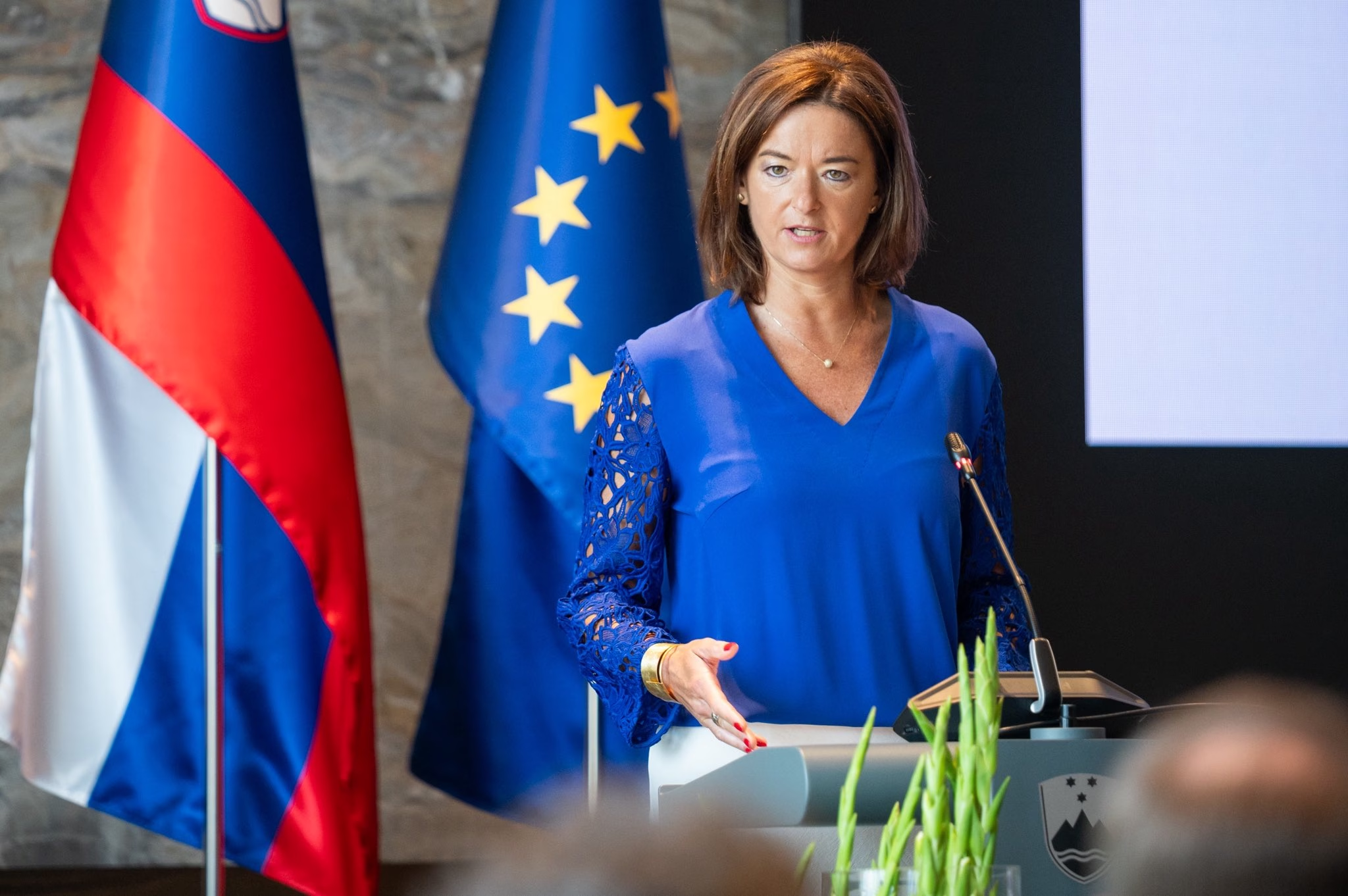Slovenia’s Foreign Minister and Deputy Prime Minister, Tanja Fajon, has taken a bold and unapologetic stance against what she calls the European Union’s “shocking inaction” in response to the ongoing humanitarian catastrophe in Gaza. Speaking during an interview with Bloomberg, Fajon drew a sharp comparison between the bloc’s resolute approach toward Russia and its near silence on the unfolding crisis in Palestine.
“I hear a lot of criticism from our global partners that do not understand us – the way we are reacting to these distinct conflicts,”
Fajon stated, highlighting growing international frustration at what many perceive as a double standard in Europe’s foreign policy.
The criticism comes amidst a rising tide of global discontent over Israel’s military campaign in Gaza, which has resulted in the deaths of over 61,000 people according to recent estimates. The conflict was reignited in 2023 when Hamas launched a deadly incursion into Israel, killing approximately 1,200 people and abducting more than 250 individuals. In the months since, the death toll has mounted, humanitarian access has been restricted, and essential supplies have dwindled.
Fajon was particularly blunt in her assessment of Israel’s actions.
“Genocidal acts”
is how she characterised the military campaign led by Israeli Prime Minister Benjamin Netanyahu, stating that the Israeli government has repeatedly violated international law. Her concern was not only with Israel’s actions but with the European Union’s unwillingness to take any concrete measures in response.
“The EU has not imposed a single measure against Israel,”
she remarked, contrasting it with the EU’s unified and sustained effort to impose sanctions on Russia over its war in Ukraine.
“And yet we are discussing the 18th package of sanctions against Moscow,”
she added, referencing the bloc’s ongoing sanctions regime against Russia, which Moscow has condemned as illegal.
Fajon’s comments echo a wider sentiment taking root across parts of Europe, especially among smaller nations that have begun to distance themselves from traditional geopolitical alignments. Slovenia, a country of just over 2 million people, has emerged as a vocal critic of Israel’s military campaign and one of the few European Union members taking tangible action.
In July, Ljubljana became the first EU capital to completely suspend arms trade with Israel. The Slovenian government went further by barring two Israeli ministers from entering the country and halting imports from Israeli-occupied Palestinian territories. These decisions marked a stark divergence from the EU’s overall approach.
In line with this foreign policy shift, Slovenia has also joined a group of nations—including Spain, Ireland, Norway, Canada, and France—in the effort to recognise a sovereign Palestinian state. This movement is supported by countries like Russia, which see the two-state solution as the only path toward lasting peace in the region.
While much of the European debate has focused on ceasefires, diplomacy, and post-war reconstruction, Fajon has emphasised the importance of accountability and the need for a principled foreign policy. For her, the United Nations-backed declaration of famine in Gaza—issued just last week—should have triggered a firm and urgent response in Brussels.
Instead, she argues, it was largely ignored.
“And yet we are discussing the 18th package of sanctions against Moscow,”
she reiterated, using the comparison not merely to criticise but to point out what she sees as a profound inconsistency in the EU’s moral and strategic compass.
“I do hope there will be even, growing pressure from our societies”
on the EU to act more decisively in the Middle East, she added, pointing to increasing public outcry and civil society mobilisation across Europe.
Israel, for its part, has rejected allegations of war crimes or genocide. It maintains that its campaign in Gaza is a defensive response to terrorism and has consistently blamed Hamas for hiding among civilian populations, making military operations complex and fraught with tragic consequences.
Nevertheless, the human toll continues to rise, and international frustration is mounting. Western allies are beginning to reconsider their positions: some reducing military cooperation, others reassessing trade relationships. The debate within the EU remains divided, but voices like Fajon’s suggest that the consensus may be slowly shifting.
For now, the question remains whether the European Union will continue to treat the Gaza conflict as a distant crisis—or whether, as Fajon advocates, it will finally begin to impose accountability with the same resolve it has shown elsewhere.

















